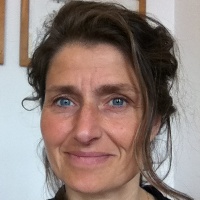Collaborate with us

Through our Living Labs, we are able to help companies, NGOs, public partners, and others to access researchers and knowledge across UCPH. All activities in the lab are based on these objectives:
- Generating and co-creating ideas and solutions with all partners relevant to the entire food value chain
- Being a provider of multidisciplinary research-based solutions and activities, for making a more plant-based diet the new normal
- Being the place for applied experimentation in a real environment at UCPH or partner(s) place
- Making the next generation well-founded and qualified to contribute to the plant-based food transition
Funding for small-scale pilot projects
We fund small-scale pilot projects, where the main activity is to develop and test specific solutions (technical, products, ideas, concepts, etc.) within the transition to more plant-based food production. The development of solutions must be based on cross-disciplinarity and co-creation with end-users. The amount per pilot project is DKK 100-300,000, and the time period is max. 1½ years. See funded projects here.
Find the project requirements here.
Living Lab Manager
 Mette Frimodt-Møller is Living Lab Manager, and you can contact her here.
Mette Frimodt-Møller is Living Lab Manager, and you can contact her here.
